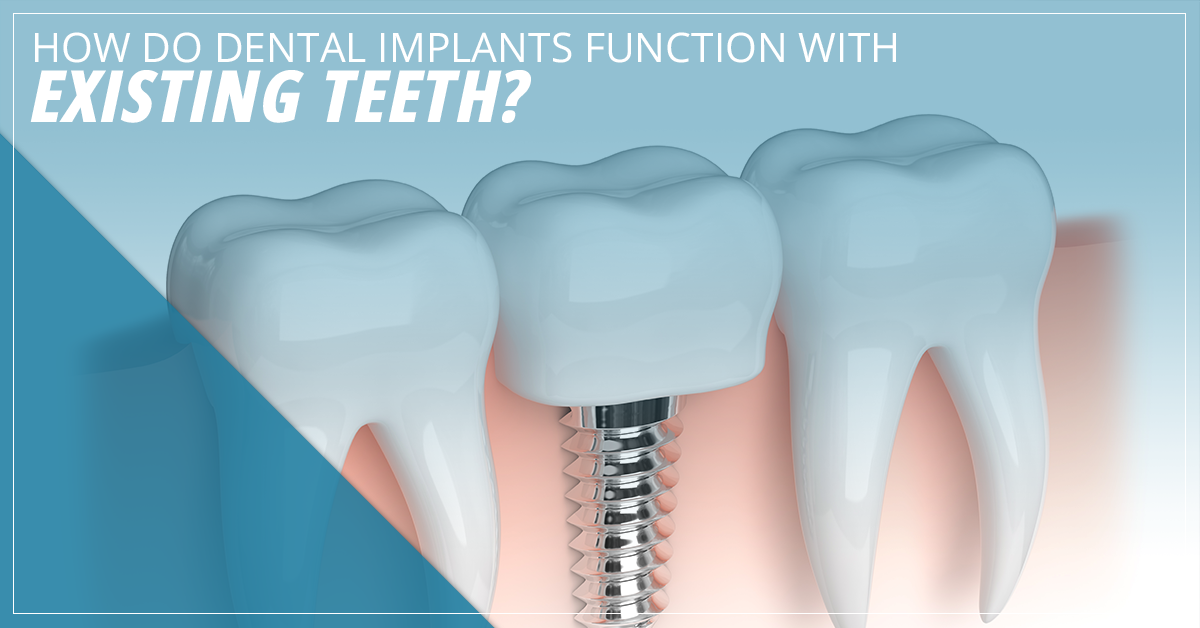
One concern surrounding dental implants is how well they will integrate with surrounding teeth. Will the implant or crown affect your natural teeth? How will the gum and bone tissue be affected? Will the color and design of the new crown match my existing teeth? In this blog, we’re going to answer these and much more.
In the meantime, if you’re ready to speak with a board-certified periodontist about your oral health concerns, don’t hesitate to contact Same-Day Implants. In the case of a loose, chipped, or missing tooth, it’s always best to err on the side of caution and speak with a periodontist immediately.
Will Dental Implants Match With Existing Teeth?
When it comes to the aesthetics of your dental implants, color, shape, and size all play an important role. Many patients are concerned that if they get implants, they will stick out or look unnatural. Fortunately, this is not the case! When you’ve decided you want to get dental implants, your periodontist will compare your natural teeth alongside implant crowns to ensure that everything matches. Most patients are surprised to find that most people never notice that they have implants instead of natural teeth.
Will Dental Implants Damage Existing Teeth?
Many people have heard horror stories of bridges damaging surrounding teeth. Some types of bridges require surrounding teeth to be filed down which essentially permanently ruins that tooth. Not only this, but the way bridges are designed will put unnecessary stress on surrounding teeth and tooth decay can often start under the bridge without you knowing. Thankfully, you won’t have to worry about any of this with dental implants. Dental implants are placed directly into the jaw and are even held in place by the same periodontal function as your natural tooth root!
Dental implants will never damage surrounding teeth; In fact, they do the exact opposite. Since your jaw needs stimulation from teeth in order to preserve bone tissue, your dental implant will actually help strengthen your surrounding teeth. The increased bone tissue will also improve the overall structure of your jaw meaning you’ll never have to deal with the “sagging jawline” look commonly associated with old age.
Cleaning Your New Teeth
After getting a single-tooth implant, not much will change as far as your oral health routine is concerned. You’ll need to make sure that you brush at least twice a day and floss once a day, making sure you get all the way below the crown. Your oral health routine will change slightly if you get either a partial arch or full arch of teeth. Since your teeth will only be supported by two or four implants respectively, you’ll need to make sure you clean under the arch between your gums and the crown. This can be done with a special flossing tool.
Remember, just because you can’t experience tooth decay with implants doesn’t mean you should let up on oral health. Your gums and jawbone are still equally susceptible to infection, periodontal disease, and peri-implantitis.
Speak With A Board-Certified Periodontist
If you have concerns about your individual circumstances,it’s best to speak with a periodontist. Most people are candidates for dental implants as long as they have healthy gums and bone tissue. If not, there are a number of restorative procedures we can performed to make you eligible. Call Same-Day Implants today to schedule an appointment and get started.








